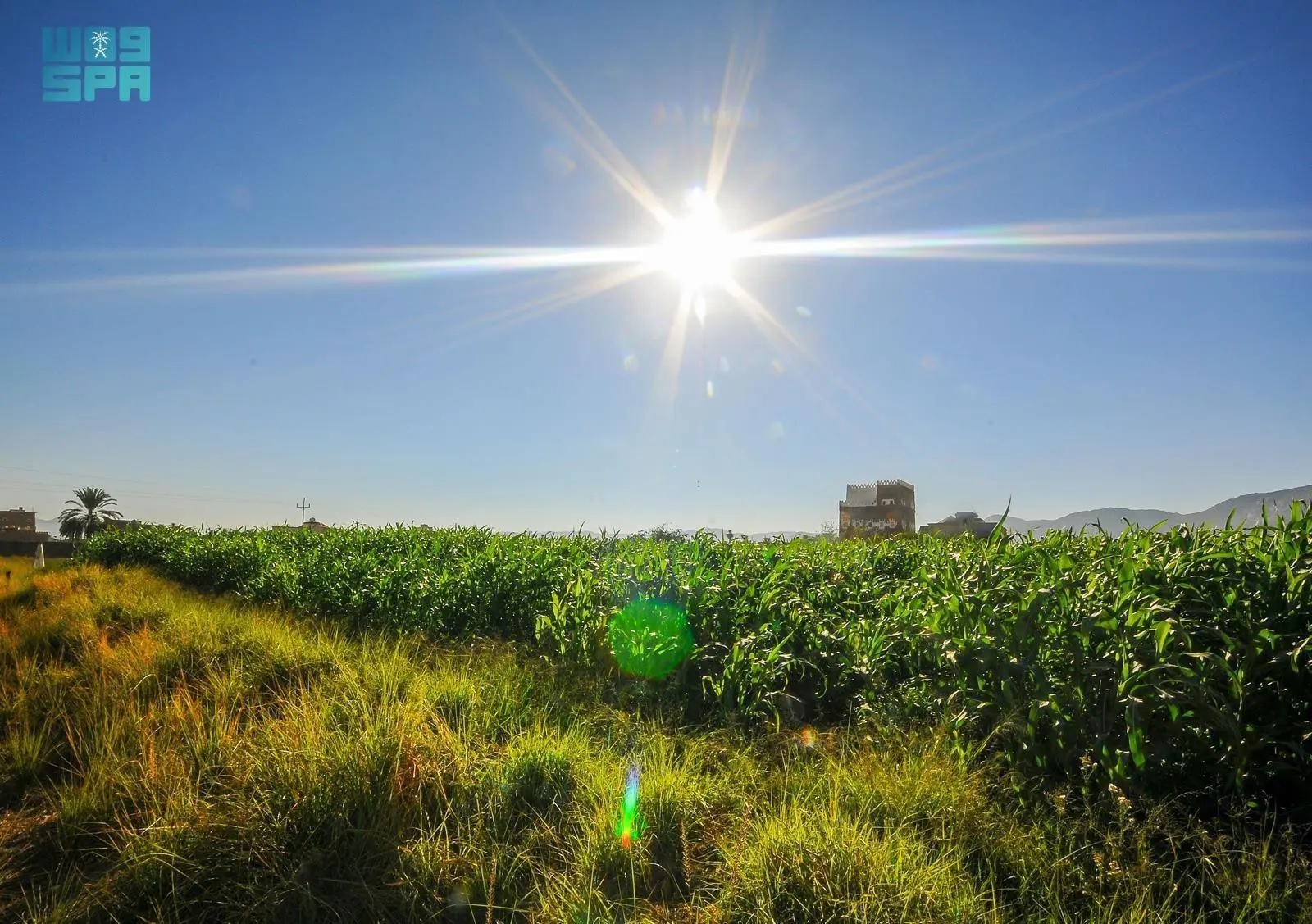
Najran's Agricultural Sector Thrives with Diverse Crops, Advanced Techniques, Coffee Boom
Najran Region is rapidly emerging as one of the Kingdom's most promising agricultural hubs, as its unique climate, characterized by moderate temperatures and an elevation of over 1,200 meters above sea level, provides ideal conditions for cultivating high-quality fruits and vegetables with stable yields throughout the year.
Najran’s diverse agricultural practices include protected agriculture, which has proven particularly successful by enabling year-round production of crops such as tomatoes, cucumbers, peppers, and beans while reducing water consumption by up to 70% compared to open-field cultivation. With strong government support for sustainable agricultural projects, protected agriculture represents a highly viable investment option.
The Ministry of Environment, Water and Agriculture reports that Najran is home to over 5,000 farms spread across an agricultural area exceeding 27,000 hectares. The region has also witnessed remarkable growth in coffee cultivation, with the number of planted trees rising from just 4,000 in 2022 to over 116,209 today, distributed across 111 farms. This transformation has positioned Najran as a prominent producer of high-quality specialty coffee in the Kingdom, recently showcasing its products at international events such as the World of Coffee Copenhagen 2024.
Najran's grape cultivation is another unique agricultural asset, as its varieties mature up to 10 days earlier than those in other regions of the Kingdom, granting them a significant marketing advantage in the local market. The region also boasts a variety of other fruits, including figs, strawberries, and citrus trees, while plant species such as sesame, beans, and stevia have been successfully introduced.
Facing limited water resources, farmers are increasingly turning to advanced agricultural techniques, particularly soilless agriculture, as a strategic solution. These include hydroponics and cultivation in inert media like peat moss, sawdust, and rock wool. Such methods significantly enhance water-use efficiency and allow crops to thrive in unconventional environments. Field experiments consistently demonstrate the success of these models in achieving high productivity for leafy greens and vegetables, yielding lucrative economic returns.
Supporting quality investment, the National Research and Development Center for Sustainable Agriculture (Estidamah) branch in Najran is actively working to preserve critical citrus varieties and origins, as well as safeguarding rare and distinctive Najran palm varieties from extinction. The center is also introducing promising new crops, such as mango varieties, through field trials and studies, paving the way for investors in high-market-value fruit production that can adapt to the region's climate.
In recent years, Estidamah has successfully produced over 1.7 million grafted seedlings, including drought- and salinity-resistant citrus varieties, which are well-suited to the local environmental and climatic conditions, thereby enhancing agricultural production stability and mitigating climate fluctuation risks.








